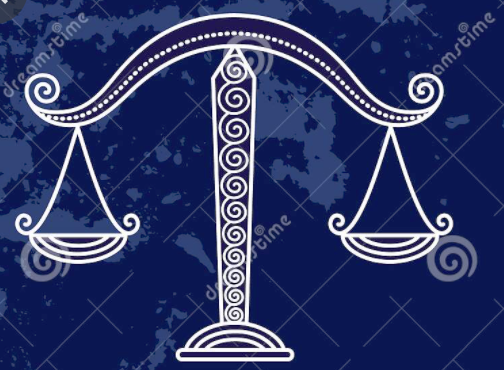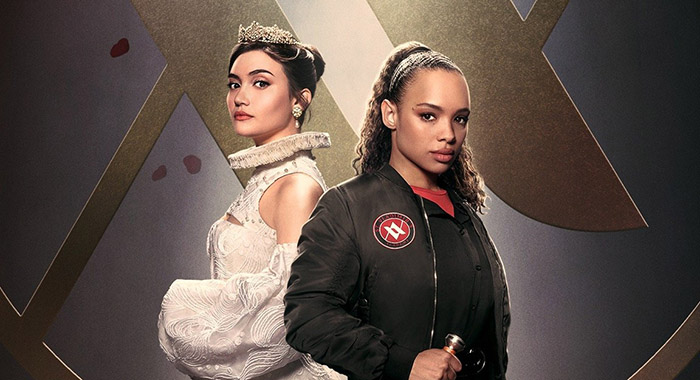The television adaptation of Richelle Mead’s popular young adult book series, The Vampire Academy, was canceled after its first season.
Eso No Me Gusta. And nor do many others.
I haven’t ripped this series apart and analyzed it at the level that I eventually will, but there are underlying socio-cultural elements that are clear even with a brief analysis of this show. Note, I live in the United States so much of this commentary and my positionality will reflect U.S. trends and the industry’s global power.
First, a quick reminder that Millennials are the most educated generation in history and Gen Z is right on their heels. These generations’ intelligence and experience growing up with a push toward equity are unparalleled in former generations. Millennials were raised on the diet of dystopian fantasies – Hunger Games, Divergent, and, of course, Harry Potter (which has its own issues, but at its core was about choosing what was right over what was easy and humility over greed+power etc). These narratives within literature and media established the necessary foundation to pass on to Generation Z … to come in and foment insane levels of rebellion, ripping inequity to shreds on every platform they can access… which are quite a few.
Regardless of positionalities around government size and structure, Millennials and GenZ overwhelmingly support – nay, demand – conversations and changes around equity. Whether it’s race, LGBTQia+, disability or other social movements, the young’uns are increasingly intolerant of intolerance and show no sign of bowing down to hegemonic pressures. A recent study by the Financial Times outlined that, in contradiction to previous generations, Millennials are not getting more conservative with age. (Great thought piece on this here.) In fact, the progressive streak is growing and positively infecting younger generations.
Delish.
So, Vampire Academy.
Despite the progressive whirlwind of voices infiltrating our workforce, media is by large still held captive in the hands of Boomers who overwhelmingly dominate private sector leadership (and politics). These are the same individuals who lived in the golden “American Dream” era where you could work a minimum wage job and save up to buy a house, car, and have children even without planning. (Unlike current generations who, per some viral tweet, are financially sunk if a few lightbulbs extinguish unexpectedly.) Of course, this all was only possible due to forced economic distribution (even by Reagan, the conversatives’ political JC) and the extreme subjugation of biPOC. That’s conveniently ignored by the wealthy as are calls for media that represents current viewpoints.
Stated bluntly, corporate decisions are not in alignment with the reality that future generations are moving toward. The voices of entire generations are ignored for classist, corporate greed. “I want to leave a better world for our children” has been replaced with “I want to hold power until the minute I die and push my views of how the world should be on others for as long as possible and also forget the damage this will inflict on those I leave behind.” And yes, we are still talking about a vampire show. Because how fantasy is represented really fucking matters.
Fantasy and fiction have been used since the dawn of time to control and drive societies. Social implications of monsters and myth have dominated culture since the Mesopotamic era. Utukku, ekimmu, sucubus, incubus, upir, are just a few precursors of the eternally evolving, immortal myth. The prowess and power of the vampire for societal control took a backseat to female character development (Bildungsroman narratives if you will) during Buffy, True Blood, Twilight, and Vampire Diaries eras. But toward the end of the latter two, we see the changing of vampire myth again with the integration of female characters as vampires. And then, hold onto your butts all, you have emerging stories of female characters as vampires themselves pushing for social change within the environment. Cue in, Vampire Academy.
There were arguably some major shifts from the book series to the TV adaptation. However, so many of these shifts were appropriate reactions to social movements that occurred between the release of the source materials (Richelle Mead’s book series) and the tv series. Just as society should not remake materials glorifying female subjugation (weaklings constantly oppressed in famous works like Dracula) Plec chose not to develop a series that was limited to a singular point in time. Specific examples include changing the relationship between female protagonist Rose and love interest Dimitri from a student/teacher dynamic to a mentorship one (and reducing their age gap, making Rose of age.) After the emergence of #MeToo , it would have been disgusting of Plec to maintain that plot point…there is an undeniable ickiness to the idea of a mentor in a position of power having sexual relations with an underage student.
Plec’s most important representation shift is undoubtedly an increased number of biPOC and LGBTQ actors/characters in the series. Richelle Mead likely wrote the world she knows, which was predominantly white, heterosexual characters. Adding biPOC and LGBTQ characters does not detract from the plot of VA. In fact, it adds layers to it and is responsive to both the Black Lives Matter movement and attacks on the LGBTQ community (anti-trans bills, Florida’s horrific “Don’t Say Gay” bill and banning of books under the dictatorship of big government control Desantis to name a few). So Plec & MacIntyre responded to these social movements responsibly… and my did the racists and homophobes emerge. (See: Twitter, TikTok, and all other platforms where racists are still going unchecked.)
[Side note: Part of the reason why Buffy was able to explore topics like LGBTQ is because 1. fictional/fantasy world 2. The show’s main characters were all white people and biPOC were only allowed to play hateful, racial stereotypes ex: Kendra. So not even Buffy – a long series with a prominent gay couple – dared to represent people of color in a meaningful way.]
Shallow readings of VA will undoubtedly focus on the main romantic relationships and the ethnicities of the characters. (Anyone who thought characters should be cast based on their race over the chemistry and talent they brought are stuck in a disgusting, racist pattern that requires a certain level of mental acuity that most are not willing to engage in. I won’t give their voices any more than this.) A deep reading of VA will focus on the critique of castes – racial and class – and in this, Plec & MacIntyre did not disappoint. Power plays in politics, social inequities, poverty, protection, health all came through and frankly much better than the book series.
We cannot underscore the importance of having two strong female heroines (a Latina and Black woman nonetheless) whose relationship persists regardless of the socio-economic chasm separating them. The cancellation means once again denying an exploration of strong female, platonic friendships (yes, yes I know many ship Lissa + Rose, I get it). I am most disappointed in not seeing Lissa give her literal soul for Rose’s happiness; the level of friendship and devotion that speaks to this action goes beyond words. We see Rose’s willingness to die for Lissa, but that follows class rules. We did not get to see the powerful sacrifice Lissa gives to Rose (who represents the lower caste.)
The main love interest is also appropriately represented. While no one in the fandom can deny the sex appeal dripping from Kieron Moore and his prominent transverse abdominis, they also recognize his character (Dimitri’s) immature man tantrums for exactly what they are. No one will say that Dimitri’s silent treatment of Rose and his worship of a structurally oppressive system as being examples of positive masculinity. Dimitri employs immature, abusive tactics to safeguard his feelings. Dimitri’s story is cut off at a point where he is still emotionally stunted. With an actor as talented as Moore, we would have had the true joy of watching the transformative arc from toxic masculinity to literal evil descent and then to an introspective man who deals with The Feels. Losing this is a true travesty.
So all this current representation + potential gets canceled. We have power held by a limited few who are disconnected from the reality of daily living. Peacock media relations can talk about data and numbers and audience as much as they want, but the reality is that this series was doomed from the beginning. Without the promise of multiple seasons to gain a base, a slow rollout, and a lack of appropriate promotion, it was not going to catch fire. As far as numbers and data are concerned, multiple accounts have pointed out that the cult classic Buffy the Vampire Slayer underperformed horrifically within its first two seasons. Fan bases are built, especially during adaptations that occur several social movements after the release of the source material. Without cable, Buffy would not have made it. And what a loss that would have been. So for Peacock to pick up this series, and have little to no investment in its success, is another example of a disconnect between media giants and consumers.
Generation Z was born learning about equity, social justice, and with endless information at their very fingertips. They are not wasting the opportunity to push for under-represented groups as much as possible… but they are hamstrung by the continued holding of power by the wealthy elite who want to push white, low-intelligence narratives with predictable arcs that highlight male power. This show was not going to provide it, so it got the ax.
In summary, Peacock punked out and everyone should just call it for what it is.

